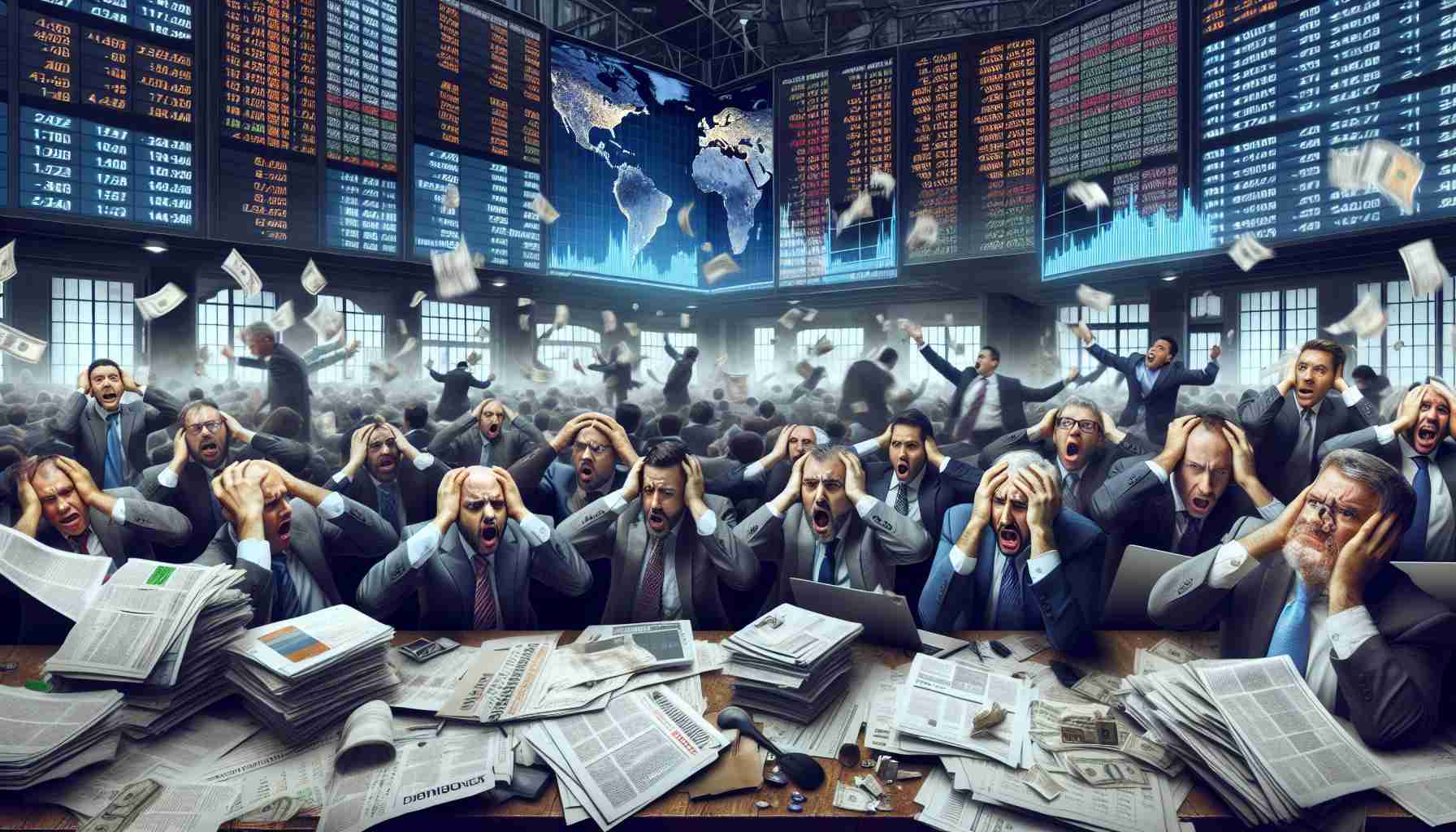European and global markets are bracing for a turbulent day, following a dismal performance in Asia’s stock exchanges. Share prices plunged as fears concerning global economic growth resurfaced, impacting investor confidence. Notably, the once-sizzling AI sector encountered significant obstacles, contributing to a broader market downturn.
Both U.S. and European futures saw a noticeable decline as the Asian markets faced their most challenging day since early August. Analysts highlighted that the prevailing uncertainty could stem from various factors, including disappointing manufacturing figures from the U.S. and concerns surrounding the slow recovery of the Chinese economy. The sharp decline of Nvidia, which resulted in substantial losses in the tech sector, also heightened these worries.
Particularly affected were technology stocks in Asia, where companies like Japan’s Advantest and Taiwan’s TSMC faced notable declines. Meanwhile, oil prices slumped to their lowest levels in nine months, amid concerns about decreasing global demand. CNOOC Ltd, a prominent oil firm in China, experienced its largest drop since early August, affecting the overall market sentiment.
As investors await critical data releases, including U.S. job openings, the market’s focus remains poised on the upcoming U.S. nonfarm payrolls report. This could significantly influence future Federal Reserve decisions, leaving investors cautious as they navigate this uncertain landscape.
Market turmoil is often exacerbated by underlying economic concerns, which can include rising inflation, changing interest rates, and geopolitical tensions. For instance, global inflation rates have shown a tendency to fluctuate, influencing central banks’ monetary policy decisions. As inflation rises, central banks may increase interest rates, which can lead to reduced consumer spending and slower economic growth.
A key challenge associated with market turmoil is the volatility of investor sentiment. Market confidence can quickly shift due to political developments, economic indicators, or unexpected global events—such as natural disasters or pandemics. This unpredictability makes it difficult for investors to strategize effectively.
One significant controversy in economic discussions revolves around the balancing act central banks face between controlling inflation and fostering economic growth. The debate often centers on whether to prioritize immediate economic stability or long-term growth, which can lead to differing opinions within financial circles.
Questions that arise in this context include:
1. What are the implications of rising interest rates on economic growth?
– Answer: Rising interest rates can slow down borrowing, which may dampen consumer spending and investment. This can lead to economic stagnation if growth is already fragile.
2. How do geopolitical tensions affect global markets?
– Answer: Geopolitical tensions can lead to uncertainty, which often results in market volatility. Investors may pull back from riskier assets, preferring safe havens during times of turmoil.
3. What role does the performance of major tech companies play in market sentiment?
– Answer: Major tech companies often drive market indices due to their significant market capitalization. Poor performance in this sector can lead to broader market declines, impacting investor sentiment.
Advantages and disadvantages associated with market turmoil include:
– Advantages:
– It may present buying opportunities for investors looking to acquire undervalued assets.
– Market corrections can lead to healthier valuations in the long term by removing excessive speculation.
– Disadvantages:
– Increased volatility can lead to significant losses for investors, especially those who are risk-averse.
– It can create a challenging environment for businesses, making it difficult for them to secure financing, thereby stunting growth.
To understand the broader implications of market turmoil and its connection to global economic conditions, consider exploring the following resources:
IMF
World Bank
OECD
BIS



















